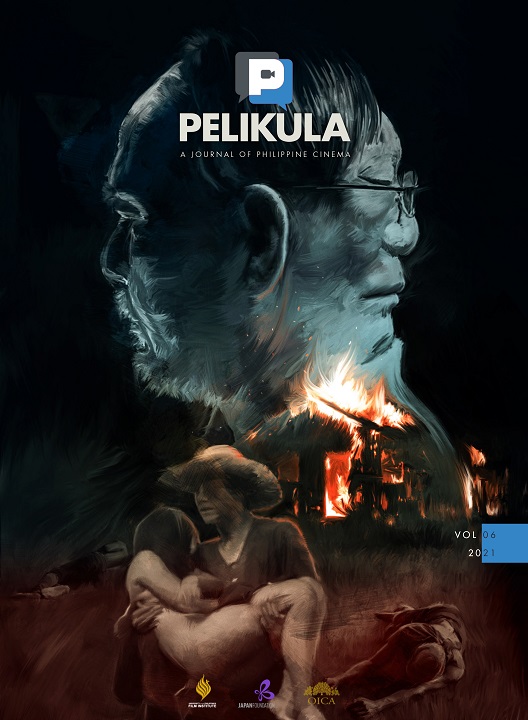The sixth volume of Pelikula: A Journal of Philippine Cinema, published by the University of the Philippines Film Institute (UPFI) with support from The Japan Foundation, Manila and the UP Diliman Office for Initiatives in Culture and the Arts, will launch online on December 17, 2021.

Pelikula is edited by Patrick F. Campos, film scholar, programmer, and previous director of the UPFI. It was revived in 2019 as part of a series of activities to commemorate the centennial of Philippine cinema and Jose Nepomuceno’s Dalagang Bukid. Curated for specialists and general readers alike, it publishes academic research, thought pieces, reviews, interviews, and visual essays.
The volume enters a nation emerging from an almost two-year lockdown amid the continuing unpeace of the COVID-19 pandemic and in fevered commotion before the 2022 Presidential Elections, characterized by bull-headed feuding among dynastic and authoritarian families. Likewise, it enters into conversation with a nation transformed by the pandemic, with spectatorial and pedagogical engagement changed by social media and the mainstreaming of video streaming services, video conferencing, virtual festivals, and other remote modes of production and communication.
On the cover, Tom Estrera III amalgamates images from Lav Diaz’s films to frame the volume’s “outward orientation” of Philippine cinema, signifying the place of Filipino film in a resonant Southeast Asian regional cinema while also capturing in one picture the mood of the times.
Campos writes of Pelikula’s expanded regional emphasis: “As we deepen our understanding of how much our historical and current struggles as peoples are similar, there is more opportunity for self-understanding and promoting solidarity across national borders.”
Apart from comparative essays on regional films and a spotlight on the works of Diaz, the volume also celebrates the legacy of Peque Gallaga from the perspective of Western Visayas. And of course, as with the previous volumes since 1999, Pelikula continues to publish a diverse collection of articles that offer new angles and arguments on the many facets of Filipino film culture and history, including papers on science fiction, romance, city films, political cinema, film festivals, film work, student works, and the archive.
The volume will be available for free at www.pelikulajournal.com.

